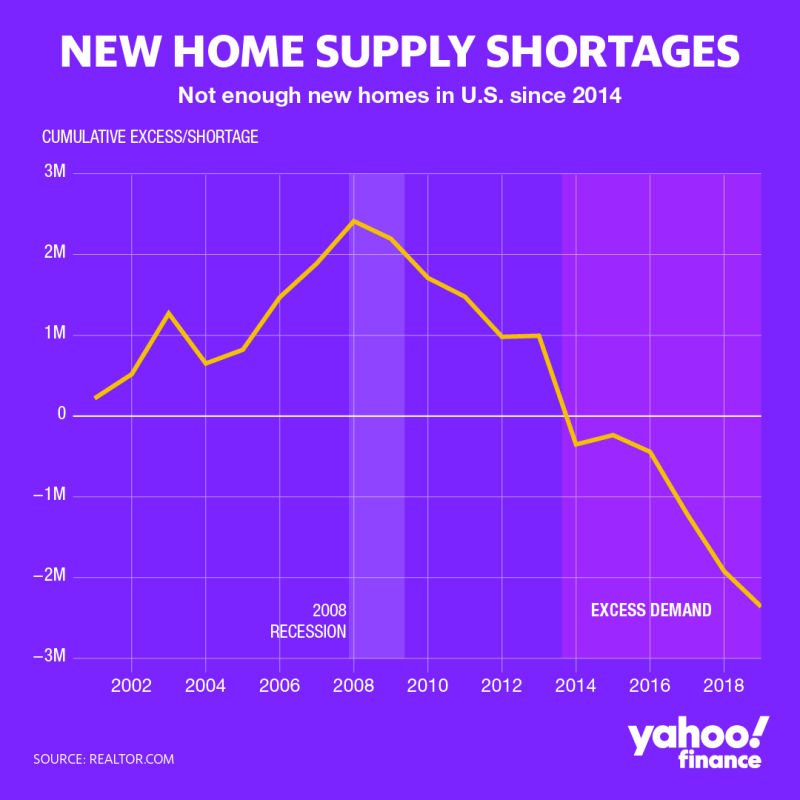Coronavirus pandemic isn’t making home sellers lower prices: survey
U.S. home sellers are sticking to their listing prices in the face of the novel coronavirus pandemic.
Most sellers have not discounted their home to attract buyers, according to a new survey of 3,000 Realtors on April 19 and 20 by the National Association of Realtors (NAR). Some 74% of Realtors reported that clients have not reduced listing prices, the NAR found.
“Sellers who believe they priced their homes to sell and that their property will continue to retain its value have not lowered their prices… The sellers are willing to wait to find that astute buyer who will see the value,” said Kathryn Landow, a real estate agent at New York City’s Warburg Realty brokerage.
In the first three weeks of April, median listing prices were up 2.5%, 1.6% and 0.8% higher, respectively than they were for the same time period in 2019. The increases are small considering April is typically peak spring home buying season, a time when some sellers increase prices. And that in early March, before the pandemic set in, median listing prices were up 4.4% year-over-year, according to Realtor.com.
"Although prices are still rising compared to last year, slower gains are indicative of early market response to economic uncertainty and hurdles to completing a transaction, along with lower buyer and seller sentiment,” said Danielle Hale, chief economist at Realtor.com.
One reason that sellers aren’t slashing asking prices is that there are still buyers clamoring to compete for a contract.
Tight inventory persists
While home buyers and sellers have backed off at similar rates, sellers are less likely to put their home up for sale and more likely to de-list, leaving fewer houses on the market, so conditions have not tipped to the buyer’s favor, said Lawrence Yun, chief economist at NAR.
In March, the market had 3.4 months of supply, meaning that it would take a little over three months to sell the inventory of homes on the market. This metric was slightly up from February but less than the 3.8 months of inventory that was on the market in March 2019, according to NAR.
“Many people are just waiting it out one to two months before deciding to list, and sellers are expressing no panic about whether or not to reduce prices,” said Yun.
Prior to the pandemic, the U.S. did not have enough homes to meet home buyer demand. As a result, prices have been on the rise since the 2008 recession, and demand has outpaced supply since 2014, according to Realtor.com.
“Before the pandemic, the housing market had a housing shortage, or a lack of inventory, in relation to demand, and that is the reason prices were rising faster than people’s income growth,” said Yun. “Then we hit a wall for the economy because of the stay-in-place orders, and there was some degree of shock factor concerning the health risk, for this completely new event.”

Hope for post-pandemic home buying
Listing prices could indicate that sellers view the pandemic as a temporary situation, said Yun.
“Home sellers have been looking at the market and know how many people have expressed interest in their home. Based on that info, they make the judgment not to reduce the price,” he said.
In fact, the housing market is expected to perform well in the post-pandemic economy. Low mortgage rates, low inventory and “sturdy demand driven by millennials aging into homeownership,” will begin to boost the market when restrictions lift, said First American deputy chief economist Odeta Kushi.
“Unlike the stock market going wildly up and down, home prices, so far, look to be steady,” said Yun. ”Once the economy reopens, there could be a re-acceleration in the home buying market, or job losses could have really damaged confidence, but it’s really too early to tell.”
Sarah Paynter is a reporter at Yahoo Finance. Follow her on Twitter @sarahapaynter
Read the latest financial and business news from Yahoo Finance
Follow Yahoo Finance on Twitter, Facebook, Instagram, Flipboard, SmartNews, LinkedIn, YouTube, and reddit.
More from Sarah:
Construction industry hit hard, even as states deem it an ‘essential service’
Coronavirus and economic uncertainty put home renovation market on ice
Closing on a home purchase virtually is more common amid the coronavirus outbreak
